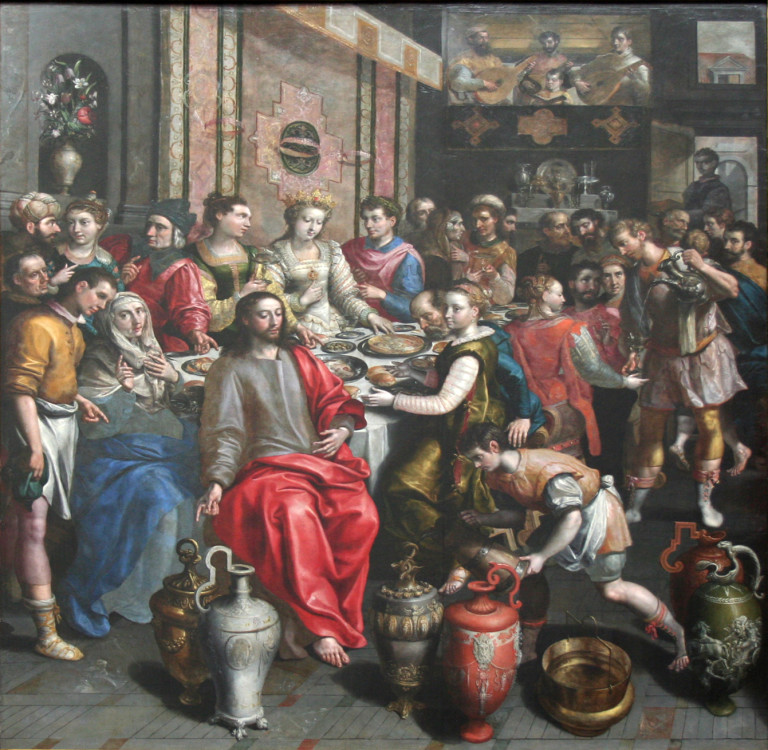Here is the second argument that I see people use against wine and strong drink.
Others’ Arguments
Abstaining from Alcohol is Consistent with Biblical Principles
There are a number of texts and biblical ideas cited to prove that abstaining from alcohol is the best policy for a Christian. These texts and ideas include the principle of edification (1 Cor. 6:12; 10:23; 14:26), the principle of refusing that which enslaves (1 Cor. 6:12), and the ethic of love for believers and unbelievers (1 Cor. 8:13; 9:19-22; 10:32-33).
Edification is doing something that builds up another person, whether it is emotional, spiritual, or physical. The Bible teaches that edification is something believers should consistently be doing to one another. If partaking of wine is inconsistent with edification then it is clearly wrong. A few verses in the Old and New Testaments shed some light on this issue. In Deuteronomy 14, God commands those who are too far from the temple to sell their tithe and purchase whatever their heart desires, including wine (yayin) and strong drink (shekar), and that they should “eat there before the LORD your God and [they] shall rejoice.” The writer of the wisdom literature in Proverbs 31 states that one should give strong drink (shekar) to the perishing – obviously for medical/pain-relief reasons. In the same chapter and verse the writer states that one should give wine (yayin) to “him whose life is bitter” reasoning, “let him drink and forget his poverty and remember his trouble no more.” Since the same writer tells Lemuel in verse 4 that wine (yayin) is not for Kings and strong drink (shekar) is not for princes one can conclude that he is offering up truly wise and balanced advice, advice that can help in lifting up those who are perishing and those who have fallen on hard times. Jesus also partook from the “cup of the fruit of the vine” during the last supper, sharing wine with His apostles, something that will be shared again in the Father’s Kingdom (Matt. 26); obviously a promise not inconsistent with edification. In 1 Timothy 5 Paul tells Timothy to drink wine for his stomach ailments, in an attempt to help build up his brother in Christ during a sickness.
The principle of refusing that which enslaves is a hard principle to work out from Scripture. Mainly because the verse used above reads, “All things are lawful for me, but not all things are profitable. All things are lawful for me, but I will not be mastered by anything.” Looking closely at the context reveals that “not being mastered by anything” does not come by refusing things that enslave but by the power of the Holy Spirit dwelling inside of each believer. Furthermore Romans 6:22 assures the believer that they are free from sin and enslaved to God. The greek word for enslave (douloō) occurs 8 times in the New Testament. In most cases it refers to the Christian no longer being enslaved to sin and non-Christians being enslaved to sin. Titus 2:3 is the only time “douloō” is used in a negative Christian context, telling women that they should not be enslaved to “much wine (oinos).” Note it is “much wine” that enslaves, not “wine” or “little wine.”
The ethic of love for believers and unbelievers is obviously something that is taught in Scripture by command, by Jesus’ example, and by His numerous witnesses’ examples. A problem arises when appealing to the ethic of love. The problem is whether or not drinking wine hurts the believer’s witness among the lost and whether or not drinking wine offends our brothers and sisters in Christ. Unfortunately these questions cannot be directly answered from the Bible because they are cultural and personal.
In some parts of the
The same cultural stigma of drinking being assumed as getting drunk can be found in the Christian Church. Christians have a duty not to offend their weaker brothers and sisters, so they should abstain from drinking if it offends them. There is also another principle that needs to be applied here; the principle of discipleship. If it is not wrong to drink wine than it is up to the stronger Christian to show his weaker brothers and sisters the truth about the differences in enjoying a glass of wine and getting drunk. This should always be done by using God’s word to teach, to refute, to correct, and to train in righteous (2 Tim 3:16). Discipleship, education, and discipline will help mature weaker brothers and sisters, as well as help reduce misdirected social standards.

